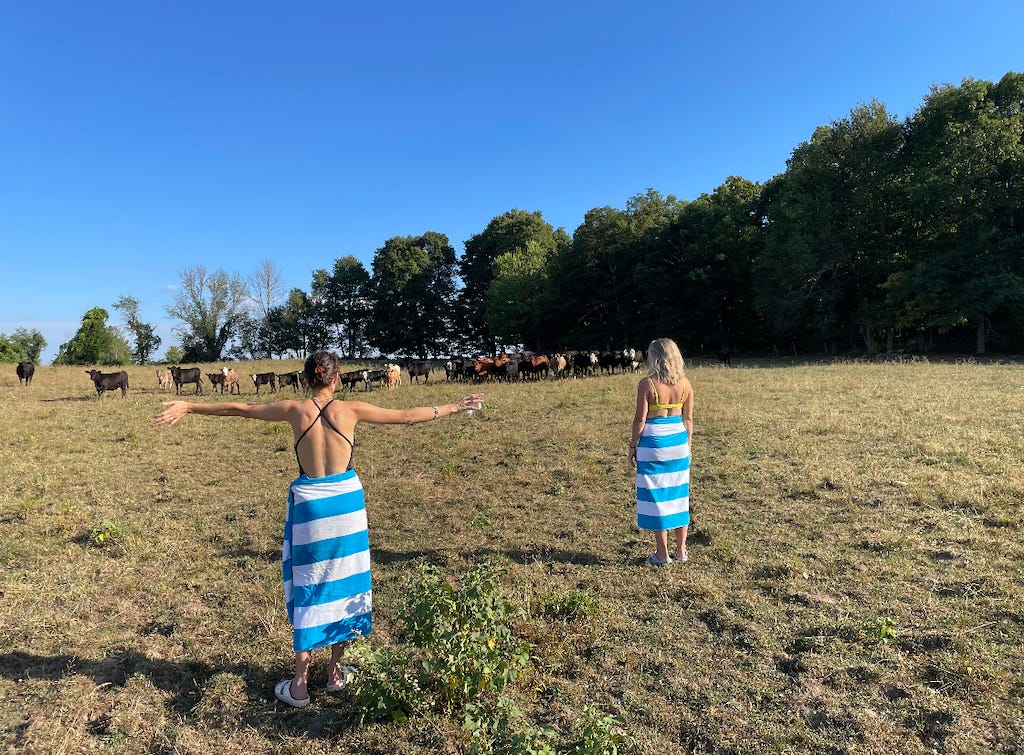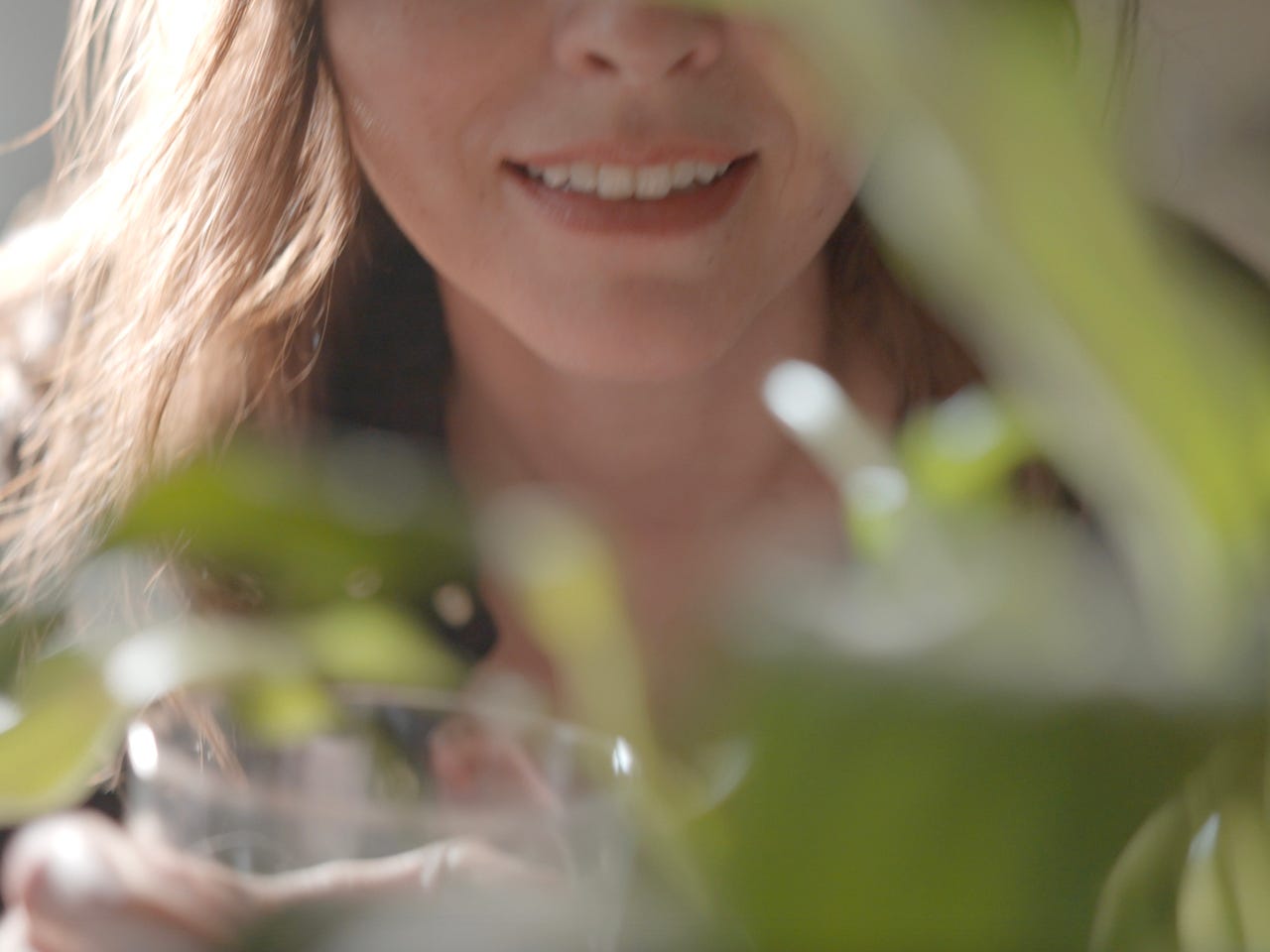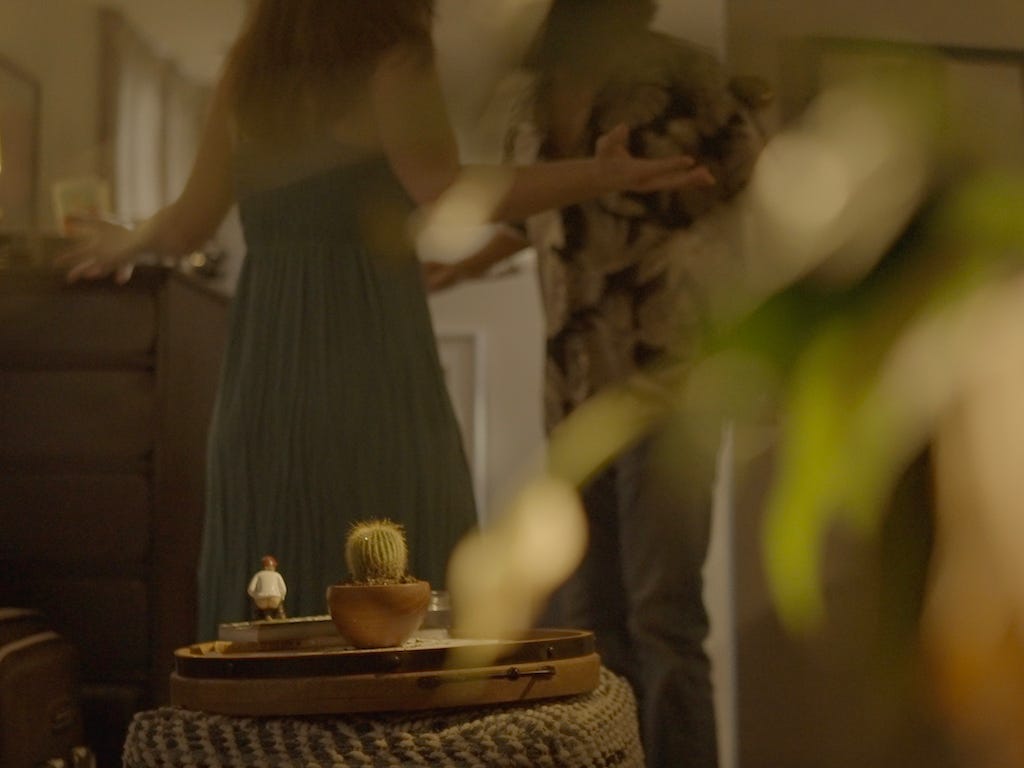Prompt 213. On Making Friends
& my pal Kristen Jean Howard on what plants can teach us
Hi friend,
Over the years, I’ve spent a lot of time thinking about community, perhaps because, for so long, I struggled to find one. When I was young, I was fascinated by sitcoms with big families on Leave-It-to-Beaver blocks; they seemed to exist in a kind of American bliss that I felt on the outside of. Most of our relatives lived in Switzerland, where my mom is from, and Tunisia, my dad’s homeland—so it was just my parents, my brother, and me, speaking French and Arabic and eating foods that most of my classmates deemed “foreign” and “weird.”
But my parents deliberately cultivated a large community of neighbors and friends. They kept an open door policy, so people were always coming and going, especially neighborhood kids. There were so many kids around that people joked that our house was a youth hostel. My parents maintain this openness and eagerness to connect to this day. In fact, when they were living in Brooklyn this summer, my dad would take long, meandering walks, and he got to know every Yemeni bodega owner in the borough. Several started giving him bottled water for his daily trek, refusing to let him pay.
This goes a long way toward explaining why I enjoy getting to know everyone when I move to a new neighborhood—the dry cleaner, the general store clerk, the neighbors who become like family. But a few years ago, when I was doing research for my book, I learned an interesting fact about resilience: that it’s closely tied to having a strong community. And something I know about community is that you have to build it before you need to lean on it.
I realized this the first time I got sick, now more than a decade ago. I was just out of college, and back then, my friend group was largely organized around beer pong—meaning our connection wasn’t based on much besides proximity at a lively party. When some of them didn’t show up for me, I was really hurt. But in time, I realized that it was up to me to create the kind of friendships that I wanted—the kind of community where we could count on each other. That became a creative challenge, one that I have spent a decade working at.
I did this by reaching out, either in real life or online, to people I admired for one reason or another. I wasn’t expecting to get something; I simply had a sense that community was vital and worked hard to build a strong one, full of kind and loving people. And at this point, my community is my proudest accomplishment.
Now admittedly, I’m an imperfect friend. Anyone who knows me can attest I struggle to return texts in a timely fashion, and I’m kind of like a groundhog, burrowing down for a while, then popping up with an invitation to some absurd adventure. (See cow photo above.) But I consciously make nurturing my friendships a priority, and I do my best to show up in meaningful, personal ways, especially in the hard times—and to do this in a spirit of abundance, rather than a transactional “I give, I take.”
Many of the early friendships I cultivated were with people I met in hospital hallways and waiting rooms. My dear pal Kristen Howard is one of them: we met at Mount Sinai Hospital, where we were both undergoing chemo, and she’s been one of my dearest for a decade. However, in recent months, as I’ve been trying to get settled in this new house in Brooklyn, our friendship has taken on a totally new rhythm and role. She’s been coming over every week, both to keep me company with her gentle presence and also to help me get organized—which is not my strong suit but is, very fortunately for me, something she loves to do.
Sometimes this feels imbalanced—because I’m currently too sick to offer the same kind of support to my friends. Recently, I was telling Kristen that I feel like I have so little to give right now, and that feels bad. I can’t help but worry that people will get burnt out on me. (I trust that anyone who has experienced a long illness understands this fear.) Kristen did what a good friend does: She reminded me that in the healthiest and best relationships, people aren’t doing that kind of accounting. There’s an organic ebb and flow. She then pointed out the ways I am still giving: all the small quiet moments we’ve shared, all the important conversations we’ve gotten to have. It’s not the same as before, but it’s equally meaningful.
Kristen is such a special person: a skateboard shop owner, an actor, a filmmaker, and one of the most energetically creative people I know. A couple years ago, she had an idea for a short film, made from the point of view of two houseplants. Ideas are easy to come by, but execution is a lot harder—and Kristen actually made it happen. (I know because I recently saw the first cut; it was so wonderfully weird and moving!) Today I’m excited to share a little piece she wrote, and a totally original prompt, that explores what houseplants can teach us about being human.
Sending love,
Suleika
Some Items of Note—
We’re one week out from our next meeting of the Hatch, our virtual creative hour for paid subscribers. Next Sunday, October 23, from 1-2pm, Carmen and Holly will be hosting and talking about hope as a creative impulse. You can learn more and add it to your calendar here!
In the Isolation Journals Chat, our new community space, we’re continuing our weekly ritual: a collective gratitude list of small joys. The Chat feature is currently in beta testing and available only on iOS-operated mobile devices, but it should be available for Android and the web very soon! You can find more info and join the conversation here!
Prompt 213. Lily and Frank by Kristen Jean Howard
I heard somewhere that if you talk to, serenade, and encourage your houseplants, they'll thrive. Up until that point, my routine of overwatering, underexposing, and cursing at them had resulted in the demise of most of my plants. So I named the scraggly survivors and began whispering to their leaves, "Lily, you are a lovely plant. You may not believe in yourself at the moment, but I do."
I investigated further and found that plants use a variety of senses to perceive their environment and communicate with one another. Some biologists like Dr. Jack C Schultz argue that plants are like slow-moving animals, in that they act out behaviors like seeking nutrients, spreading their seed, and enacting defense mechanisms—it all just tends to happen very slowly. Plants also talk to one another, warning each other of pests or disease approaching. Many familiar plant odors like jasmine and wintergreen are actually molecules thrown into the air by plants in response to threats. Dr. Schultz says the smell of your freshly cut lawn is actually your grass crying out for help.
From this botanical curiosity, the screenplay for a short film was born. Titled Lily and Frank, it explores the relationship between the beautiful but withering Peace Lily, her constant companion Frank (a neurotic Golden Ball Cactus), and me, their semi-fictitious, mostly negligent waterer. When my character, named simply WOMAN in the script, leaves her starving plants behind to go on vacation, Lily and Frank are left pondering their existence.
Despite playing the human in this film, I'm surprised to discover how much I relate to its botanical heroine. As a cancer survivor managing a rare autoimmune disease, I feel both strong and fragile. Brimming with life and potential, yet slowly withering in place. Desperate for connection and limited by circumstance. Keenly aware that my very survival depends on my being nurtured by and connected to other complicated, lovely, and occasionally forgetful humans like me. And all I can do is turn my face toward the light and let my instincts lead.
Your prompt for the week:
Imagine a dialogue between your own houseplants. How do they relate to one another? Their environment? You?
Never had any plants in the house or already killed them all? No problem. Take a look outside and create a conversation between the weeds in your driveway crack and the neighbor’s award winning rose bushes. Then go ahead and cast your fantasy roster of actors to voice your botanic characters.
If you’d like, you can post your response in the comments below, in our Facebook group, or on Instagram by tagging @theisolationjournals.
Today’s Contributor
Kristen Howard is a cancer survivor, skateshop owner, and emerging indie filmmaker. She studied acting with Suzanne Esper at the William Esper Studio and was a member of the Barrow Group’s Apprentice company. Kristen’s short film, Lily and Frank, is currently in post-production and will be submitted to festivals in 2023. Follow its journey here.
For more paid subscriber benefits, see—
On Creating Beyond Fear, a video replay of our Studio Visit with Elizabeth Gilbert, where she talked about cold-plunging, shared her “purpose” talk, and gave us a tour of her magical church-turned-cozy-abode
Lighting the Way, an installment of Dear Susu where our whole community answers the question: “What mantra do you have for when times are hard?”
Cultivating Seed Dreams, where I wrote about getting stuck and unstuck and begin to plot the distance between myself and a big dream














Now I worry about the rosemary bush on my front porch that I vigorously brush through with my hands when I come back from walking my dog. Does it see me coming? Does it scream in terror at being assaulted or squeal with joy at seeing me, knowing I’ll give it attention? Is the scent given in gratitude or released in defense? Does it have a name? Is it insulted I don’t know it or never asked? It is ok that I call the plant an “it?” I feel like a colonizer doing that. I have so many questions I hadn’t had before reading this. And nobody to ask.
Hello Aloe...you started out life, as a cutting, a baby and I brought you into my Pre-K classroom where you were surrounded by the laughter, the innocence, the growth of my caring community of learners. Every summer, I would take you home, the last item I would remove after packing up my classroom for the year. I would place you outside, first in the shade to acclimate and then in the sun to flourish. By summer's end each year, you had grown new babies, turned the deepest green and rewarded me and my new group of students with your lushness under the glare of the classroom fluorescent lights. But then, came the gloaming...the moment when my daughter was so ill, I had to retire early. And I have neglected you since...I have you on my window sill, but I look at you and see the deep sadness, the overwhelming hole that leaving my little students six years ago now, left. I water you, when I remember, and you haven't been outside in six summers. I'm so sorry. I'm so deeply sorry. I took my sadness out on you, while all the while claiming to be such a caring, kind human. Today, I will attend to you, stroke your dense leaves, water you deeply, and when Spring comes, separate the parts that need more room of their own. And when Summer comes, I will bring you outside, first in the shade to acclimate, and then to the sun to flourish. As I write this, I realize I have neglected myself this past five going on 6 years....and I vow to treat us with what we both used to thrive on-the laughter of children, attention, admiration, change of venue, renewal and hope. Thank you, Aloe.